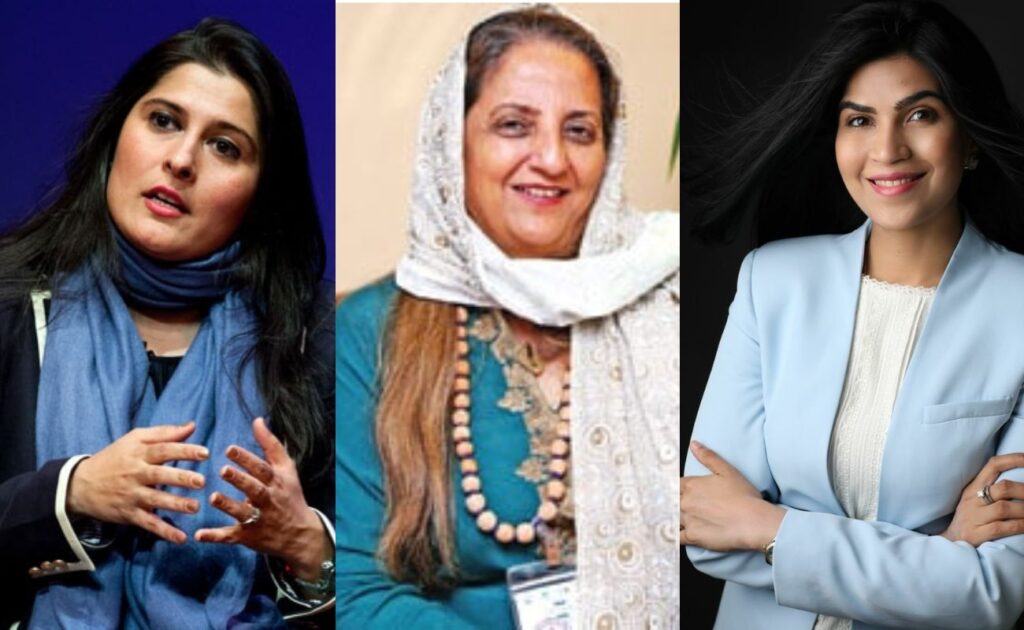In Pakistan, a country known for its rich cultural heritage and diverse society, women have made significant progress in various fields. However, one area where they still face considerable challenges is entrepreneurship. Pakistani women hesitate to open their own businesses for a myriad of reasons, ranging from cultural and societal constraints to personal and psychological factors. In this article, we will delve into these obstacles and explore how they contribute to women’s lower confidence compared to men in pursuing entrepreneurial ventures.
Cultural Constraints
Cultural norms and values play a pivotal role in shaping the lives of Pakistani women. Traditional gender roles and expectations often dictate that women should prioritize their roles as wives and mothers over pursuing careers or businesses. The concept of ‘purdah’ or modesty, which encourages women to remain in the confines of their homes, is deeply ingrained in many parts of Pakistani society. Consequently, these cultural constraints can discourage women from venturing into entrepreneurship as it may be perceived as unconventional and socially unacceptable.

Societal Pressures
Societal pressures and the fear of judgment from family, friends, and the wider community can be overwhelming for Pakistani women. The conservative nature of society can stifle their entrepreneurial ambitions. Women who decide to start their own businesses may face resistance and skepticism, making them hesitant to take the plunge. The fear of not conforming to societal norms often leads to women abandoning their entrepreneurial dreams.
Personal Constraints
Personal constraints, including limited access to education and financial resources, also hinder Pakistani women from starting their businesses. The gender disparity in education, especially in rural areas, leaves many women with inadequate skills and knowledge required for entrepreneurship. Additionally, financial independence and access to capital are crucial for launching and sustaining a business. Unfortunately, many women lack the resources or collateral necessary to secure loans or investments, further discouraging their entrepreneurial aspirations.
Socialization of Women
From an early age, Pakistani girls are socialized differently from boys. They are often taught to be obedient, submissive, and risk-averse, while boys are encouraged to be assertive and confident. These gendered expectations lead to women having lower self-esteem and confidence when it comes to taking entrepreneurial risks. As a result, women may perceive business ownership as a domain reserved for men, contributing to their hesitation in pursuing such opportunities.
Lack of Role Models
The absence of prominent female role models in the Pakistani business landscape can also deter women from entrepreneurship. When women do not see others like them successfully owning and running businesses, they may question whether they too can break the mold. The lack of relatable role models can exacerbate feelings of inadequacy and discourage women from pursuing their entrepreneurial dreams.
Legal and Regulatory Barriers
While progress has been made in Pakistan to improve the legal and regulatory framework for businesses, there are still barriers that disproportionately affect women. Discriminatory laws and practices can make it difficult for women to register and operate their businesses, particularly in sectors considered traditionally male-dominated. These legal hurdles can add to the hesitation and apprehension of aspiring female entrepreneurs.
Pakistani women possess the potential and drive to become successful entrepreneurs, but they face numerous hurdles that discourage them from realizing their ambitions. Cultural norms, societal pressures, personal constraints, socialization, and a lack of role models all contribute to their hesitance in opening their businesses. It is essential to recognize and address these obstacles to create an environment where Pakistani women feel empowered and confident to pursue entrepreneurship. Initiatives aimed at providing education, financial support, mentorship, and legal reforms can help break down these barriers, allowing women to thrive as entrepreneurs and contribute to the economic growth and prosperity of Pakistan. When women’s entrepreneurial potential is unlocked, the entire society stands to benefit from their innovation, creativity, and leadership.

Some honorary mentions to act as role models for young women in business today:
- Mahlaqa Shaukat, the founder of AimFit, is a trailblazing woman in business. Her vision and determination have propelled AimFit to become a prominent fitness and wellness platform in Pakistan. Shaukat’s commitment to promoting health and fitness empowers women and sets an inspiring example of female entrepreneurship in the region.
- Sharmeen Obaid-Chinoy is a renowned Pakistani filmmaker and journalist. She co-founded SOC Films, a production company known for producing socially relevant documentaries and films. Her documentary “Saving Face,” which focused on acid attacks on women in Pakistan, won an Academy Award in 2012. Obaid-Chinoy’s work has not only earned her international acclaim but has also shed light on important social issues in Pakistan.
- Lastly, Shanaz Ramzi is the founder of Starlinks PR & Events, a prominent public relations and event management company in Pakistan. With a background in journalism and a passion for storytelling, Ramzi built her business from the ground up. Her company has successfully organized numerous high-profile events and managed PR campaigns for various clients, demonstrating the potential for women in the male-dominated field of event management and PR.

